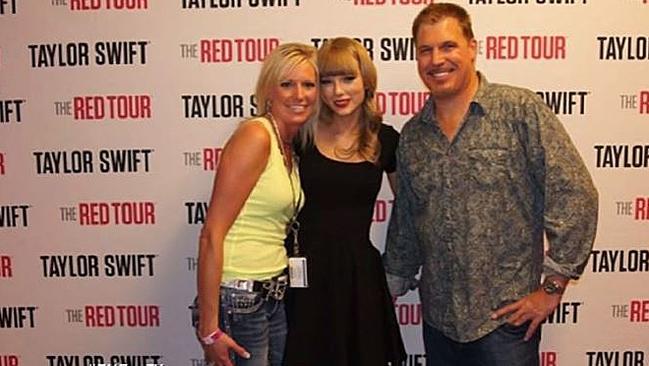Taylor Swift’s refusal to back down is a powerful statement
TAYLOR Swift’s calm refusal to back down in her groping court case smashed myths about sexual assault victims, and for that, she should be lauded, writes Alana Schetzer.

Rendezview
Don't miss out on the headlines from Rendezview. Followed categories will be added to My News.
SOCIETY has pretty dim and narrow view of victims and survivors of sex assaults.
We expect them to act a certain way — cry, be vulnerable, shake physically. And if women don’t act this way, then people immediately cast doubt on whether they’re telling the truth.
So when pop superstar Taylor Swift took the stand in a Denver courtroom last week, as part of civil trial involving a radio DJ who she alleges groped her, she smashed those myths.
David Mueller was fired days after the alleged assault, after Swift’s team reported his actions to the radio station. Mueller was suing Swift for $3 million, claiming she ruined his career and that he never grabbed her backside. Swift countersued for a symbolic $1, claiming sexual assault and battery.
Sitting poised in her chair, Swift faced a barrage of questions from Mueller lawyer, who tried to trip her into saying something that would question her version of events.
But Swift wasn’t having any of it. When asked if she had witnessed the assault, Swift stayed calm and hit back, saying no because: “My ass is located in the back of my body”.
When asked if she blamed her bodyguard for ‘letting’ the assault to occur, Swift said: “I’m critical of your client sticking his hand under my skirt and grabbing my ass.”
Her gutsy testimony has been widely praised, for her refusal to be intimidated, cry or be vulnerable. She refused to fit into a stereotype that didn’t suit her or define her.
Swift maintained that she was the victim of an unprovoked sexual assault, but she was still Swift, the person.
She released a statement shortly after her courtroom victory today, acknowledging the racial and financial privilege she has, which allowed her to mount the very expensive act of defending herself legally.

It’s important to acknowledge that few victims are in such a fortunate position, but it’s equally important to acknowledge that what Swift did will have a ripple effect for sex attack victims across the world.
Victims are not a homogenous group who respond in only way one, who keep their head down or tear up involuntarily. They are still people who have lives to live.
By demanding that victims fit a narrow idea that dictates their behaviour and actions long after the assault, what we are saying is that victims are no longer people, and must therefore be defined by what happened to them.
Society has been conditioned to place the onus over sex assaults on to the victims — ‘what did she wear?’, ‘was she asking for it?’, ‘what did she expect when she went home with him?’ — and remove them from the actual offenders.
Or we demand to know why they didn’t report it immediately.
Radio presenter Fifi Box this week revealed she was groped by a male celebrity during an interview more than a decade ago.
She said on Fox FM that he stroked her leg then pushed her head into his crotch.
“You could argue I’ve been sexually assaulted, and yet laughed or giggled my way through because I’ve been scared or intimidated by the situation,” she said.
We expect victims to be sad and traumatised all the time, almost like a performance for us to watch so that we can be sure that what they said happened.
When Swift refused to be swayed by a difficult cross-examination, refused to play along with what people expected of her, she made a huge statement about maintaining her own autonomy as a person, and not allowing the myth of how a victim is expected to behave, take over.
Swift’s victory isn’t just a win over a man who thought that he had the right to grab her body without permission, who thought that he was entitled her touch a young woman’s backside during a work event, but a victory for all women who are defending their rights, and the right to do so without having to perform as a ‘victim’ for society’s entertainment.


